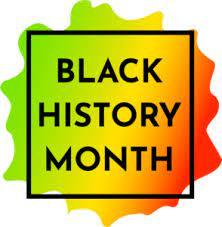
February 1st is the first day of Black History month
Q9powersportsusa.com StaffShare
February 1st is the first day of Black History month
Black History month, also known as African American History Month, is an annual celebration of the achievements and contributions of African Americans throughout history. It is observed in the United States and Canada during the month of February. The celebration originated as 'Negro History Week' in 1926, established by historian Carter G. Woodson to bring attention to the often overlooked history of African Americans.
Today, Black History month serves as a time to reflect on the struggles, accomplishments, and cultural heritage of African Americans. It is an opportunity to honor the individuals who have made significant contributions to the advancement of civil rights, arts, sciences, politics, and many other fields.
Why is Black History month important?
Black History month plays a crucial role in promoting equality and diversity. By highlighting the achievements and experiences of African Americans, it helps to challenge stereotypes, combat racism, and foster a greater understanding of the African American community's rich history.
Throughout history, African Americans have faced immense challenges and discrimination. From the era of slavery to the civil rights movement and beyond, African Americans have fought for their rights and made significant contributions to various fields despite facing systemic barriers.
Black History month provides a platform to acknowledge and appreciate the resilience and strength shown by African Americans in the face of adversity. It reminds us of the significant contributions made by African Americans to society, often in the face of social injustice and limited opportunities.
By learning about the struggles and triumphs of African Americans, people of all backgrounds can gain a more comprehensive understanding of American history and the complex dynamics that have shaped the nation. It is a time to recognize and celebrate the accomplishments of African American leaders, activists, artists, writers, scientists, and everyday individuals who have played a vital role in shaping the cultural fabric of the United States.
How to celebrate Black History month
There are many meaningful ways to celebrate Black History month and honor the legacy of African Americans. Here are some suggestions:
- Learn about African American history: Take the time to educate yourself about the significant events, figures, and movements in African American history. Read books, watch documentaries, or visit museums that focus on African American culture and heritage.
- Support African American businesses: Discover and support local African American-owned businesses in your community. This can be a great way to uplift and empower the African American community while contributing to economic growth.
- Attend Black History month events: Check out local events happening in your area, such as lectures, panel discussions, or performances. These events provide an opportunity to learn, engage, and celebrate together.
- Volunteer or donate to organizations: Find and support organizations that work towards promoting equality and social justice for African Americans. Consider volunteering your time or making a donation to support their important work.
- Share knowledge with others: Use your voice and platform to share information and raise awareness about Black History month. Educate your friends, family, and colleagues about the significance of this month and encourage them to join in the celebrations.
- Engage in meaningful conversations: Take the opportunity to engage in discussions about race, equality, and social justice. Black History month is a time to reflect on the progress made and the work that still needs to be done to achieve true equality for all.
- Support Black artists and creators: Explore the works of African American artists, musicians, writers, and filmmakers. Attend their exhibitions, concerts, readings, or screenings. By supporting their art, you contribute to the recognition and appreciation of African American culture.
- Teach Black History to the younger generation: Engage children and young people in learning about Black History. Educate them about the contributions of African Americans and the importance of diversity and inclusivity.
- Reflect on personal biases: Use this month as an opportunity for self-reflection and examination of biases or prejudices. Challenge yourself to confront and unlearn any misconceptions or stereotypes you may hold.
- Support legislative actions: Stay informed about legislative actions that promote equality, civil rights, and social justice. Support policies and initiatives that aim to address systemic racism and create a more equitable society.
Remember, Black History month is not only about celebrating the past but also about recognizing the ongoing contributions and struggles of African Americans in the present. Let us use this month as an opportunity to celebrate diversity, promote equality, and work towards a more inclusive society.
